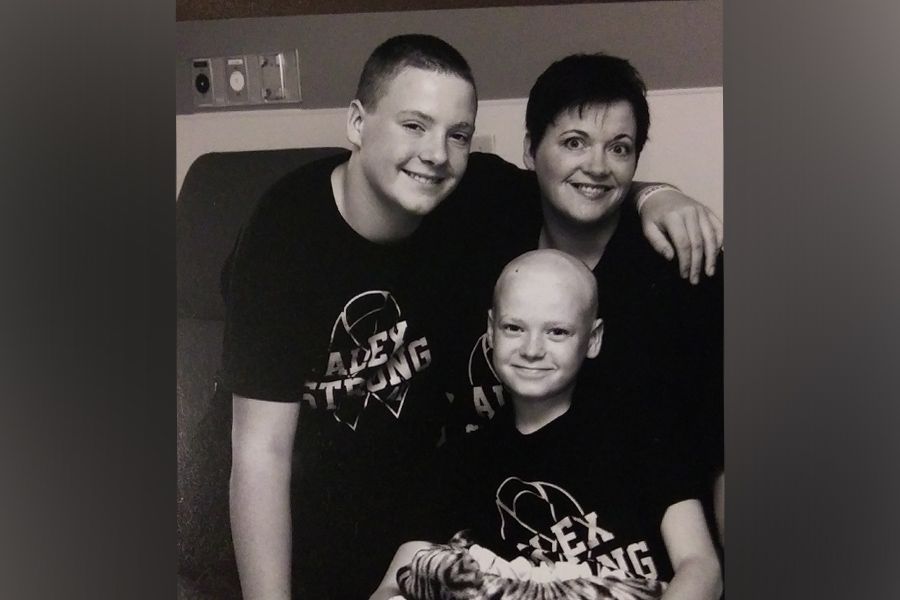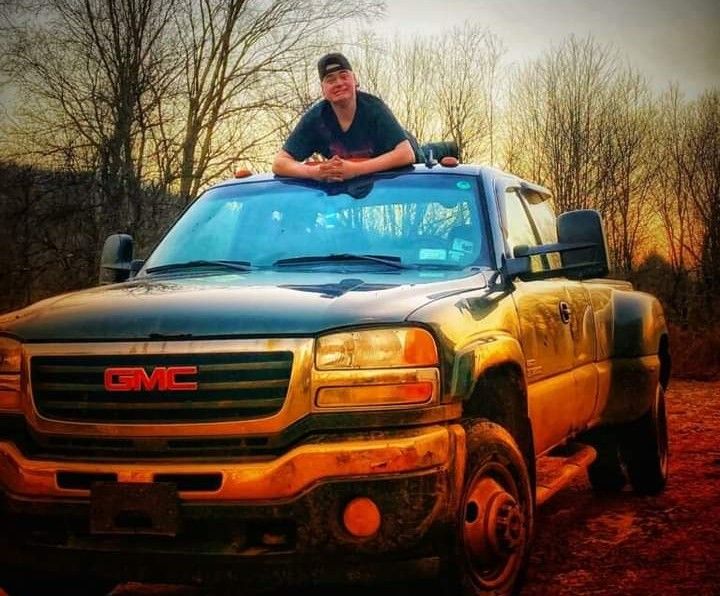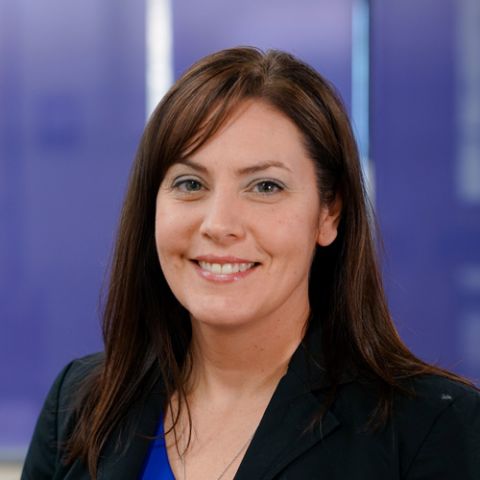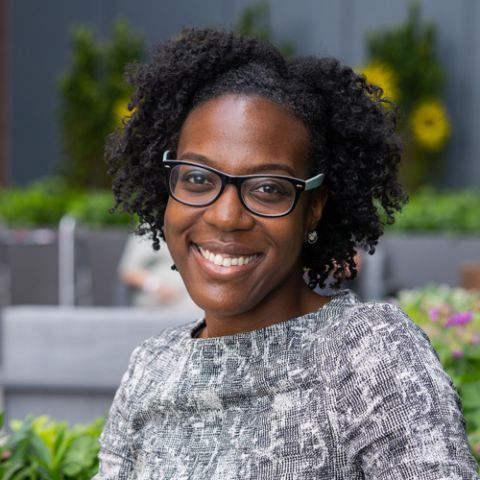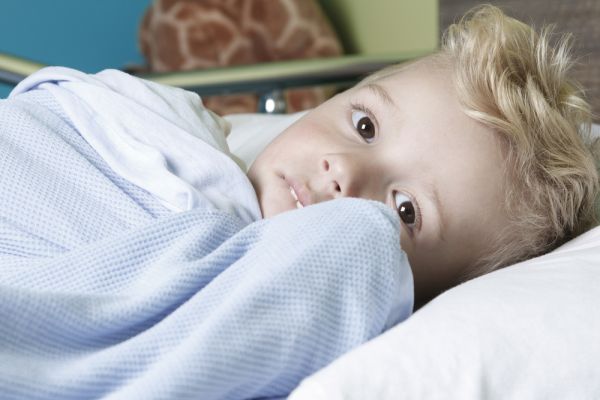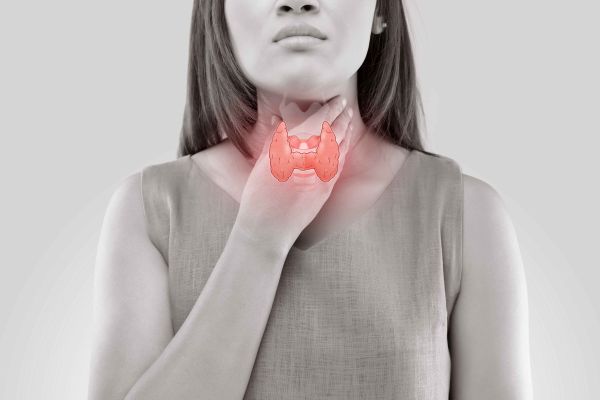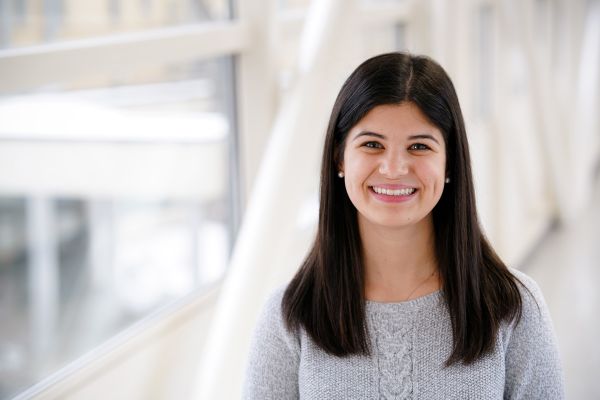These days, Alex Newark is hard to miss, driving around his hometown in a tall truck adorned with flags, mischievous grin flashing. He’s another teenager emboldened by the freedom that comes with getting a driver’s license and seeing the whole world open up in front of him.
His mom, Penny Newark, is equal parts glad that her son is acting like a normal teenager and grateful for the neighbors who help keep an eye on her youngest son. She’s also relieved that, for now, Alex’s cancer, and her own, is in the rearview mirror.
It’s been a long few years for her family. In August 2016, the family, including older son Harrison, had gone to a fair and Alex, then 11 years old, hit his knee. A tough kid who was thriving in his football league, it seemed odd that he couldn’t just walk through the discomfort. A month later, deep into football season, it was still painful.
“We thought it was just growing pains,” Penny says. “He had a bubble on the side of his leg that was bruised. He was due for a physical in September and had started football practice but sat out some plays. We didn’t think much of it until the doctor’s appointment. She suggested physical therapy and at that point he was playing football two hours a night. The next day he had an ultrasound on his left leg and that’s when they noticed an anomaly.”
Less than an hour after an MRI later that week, they received a call to make another appointment the following morning. By the end of the week he was meeting with Denise Rokitka, MD, MPH, Director of Pediatric and Adolescent Cancer Survivorship and Director of the Young Adult Program and Oncofertility Program at Roswell Park Comprehensive Cancer Center. Alex was diagnosed with stage 2B osteosarcoma in his left femur, with surgery scheduled for just before Christmas that year. A portion of his leg bone had to be removed, in addition to some muscle, and a metal prosthesis was implanted in his leg to help Alex maintain his height. Joseph Kuechle, MD, PhD, an orthopedic oncologist, used a special magnetic treatment to Alex’s leg to expand the prosthesis millimeters at a time.
Why Roswell Park for pediatric cancer?
We want the childhood cancer survival rate to keep climbing. When you trust your child’s cancer care to us, you are giving your child the tools needed to fight this battle.
Learn MoreTheir community rallied around the family, making sure Alex and Harrison had a Christmas tree in their home and presents under it. Alex’s football team might not have had him on the field, but they covered him, with a different family taking Harrison in each week as his little brother and mother spent time at Roswell Park.
“It wasn’t just Alex’s football team, it was the whole league,” Penny recalls. “And not just the teams in Cattaraugus County, it was also Chautauqua County, Allegany County, some of the fire departments, the Trans Am Services medical community. The community support was just beyond all expectations.”
The pandemic caused Alex to miss a follow-up appointment and, when he was able to come back to Roswell Park in June 2020, his doctors noticed a spot on his lungs.
“I felt fine,” Alex says. “No coughing. Nothing was out of the ordinary. I was just living my life and then oh, by the way…” He needed surgery to remove the lower left lobe of his lung in a procedure called a wedge resection to take out the tumor and a wedge-shaped portion of the surrounding tissue. Then in October 2021, during another follow-up exam, his team found another spot on his lung, but by December the spot had disappeared.
Treatment interrupted by the pandemic
Following his treatment, life returned to a new normal for the Newarks. They were approaching Alex’s five-year mark for his osteosarcoma diagnosis in early 2020. Penny was excited to be starting a new job in a physician’s office; a change she made after months of essentially living in a nursing home in the early months of the COVID-19 pandemic in order to keep patients there safe. Prior to starting, she needed to have a physical exam completed, and because of a family history of thyroid cancer, Penny came to Roswell Park for a precautionary ultrasound.
“They found nodules,” indicating cancer, Penny says. She met with Kimberly Wooten, MD, a surgical oncologist in the Head and Neck Department, and had her thyroid gland and 21 lymph nodes removed from her neck to eliminate the thyroid cancer. “In the meantime, I asked my younger sister, Peggy, to get an ultrasound. In between my surgery and radiation, she had her thyroid removed because she had cancer in it. If I would’ve had a thyroid ultrasound earlier, they wouldn’t have needed to take 21 lymph nodes because it wouldn’t have spread. But I was taking care of Alex and focused on him at the time.”
“Every day is a great day for us”
Now both Alex and Penny are cancer-free and rang the Victory Bell together last fall. They continue regular appointments to monitor their health and, especially for Alex, make sure his cancer doesn’t return. This summer, Penny intends to have genetic testing done for all three of them, given her family’s history of cancer – her mother also has been treated for a number of different cancers and she wants to make sure her sons understand their risks going forward.
Penny is grateful, in addition to the support of her community, for how Harrison stepped up to care for his brother during the past few years. “He’s had to grow up quick. I depended on him a lot. He had to hold down the fort when I was in the hospital for three or four days during my treatment.”
Her younger son, whose doctors asked him to take it easy during treatment – their advice might not always have been heeded as closely as they would’ve liked – is a “spirited” kid who likes to drive loud and fast. But he’s still capable of surprising her.
“Today is a blessing, it’s never a promise,” Alex said when asked to reflect on his cancer journey.
His mother and brother stopped talking and looked at Alex, jaws dropped and eyes wide. “Where did that come from!?” Penny asked.
“It’s just true,” Alex said with a shrug. “It’s been tough but I have really good friends I hang out with. They help a lot. They come over. I text and ask them to help on something and they come right over.”
Penny encourages other parents, and young patients, to make sure they’re keeping up on their follow-up visits. “It’s another step forward. It’s scarier because you don’t know if something has changed, but if we had made that initial appointment in March (during the COVID-19 pandemic), they might not have found the spot. Right now, each day is a great day for all of us. We’re thankful for every day we have, no matter what. We just keep moving forward and help people out when we can.”
Genetic screening at Roswell Park
If cancer runs in your family, there may be an inherited factor that increases your risk of developing cancer in your lifetime.
Schedule an AppointmentEditor’s Note: Cancer patient outcomes and experiences may vary, even for those with the same type of cancer. An individual patient’s story should not be used as a prediction of how another patient will respond to treatment. Roswell Park is transparent about the survival rates of our patients as compared to national standards, and provides this information, when available, within the cancer type sections of this website.
